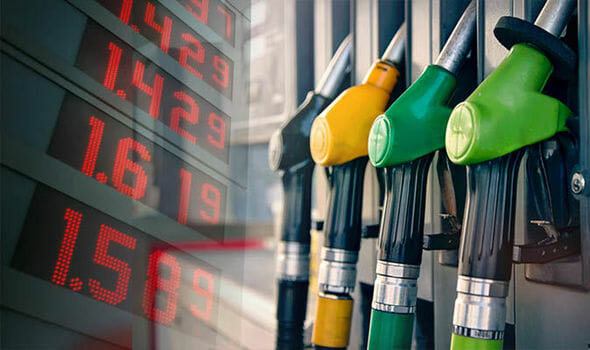
Over the past 10 years, fuel prices have continually fluctuated here in the UK however, it is a rare occasion to now witness the penny per litre sign going down for any considerable amount of time. As of the 1st January 2016, businesses across the UK were reveling in the fact prices had dropped 101.4p for petrol and 100.8p for diesel however, the decrease was short lived, and now, we have become accustomed to +120.0p. Unfortunately, there is little the industry can do in regard to driving down the average pence per litre of fuel although, there is a variety of ways in which you can save on consumption. Here, with Vindis, who offer a range of Audi service plans, we examine the different ways in which construction firm fleet owners can drive down fuel bills.
Combining trips
Starting the engine of a vehicle is one of the most fuel consumption heavy periods within your journey. The engine will be cold and so a lot more fuel will be used for around the first five miles of you heading out onto the road. With this in mind, you should look to drive for as long as possible when the engine is warm instead of conducting several short trips with long gaps in between each one.
If, for example, you need to pick up materials from the wholesaler, preplan everything you need to get at the start of the week, and this will inevitably cut down on the number of trips you need to make. This will reduce the number of times that a van is having to be started.
Aerodynamics
Wind resistance is one of the main causes of increased fuel consumption in regard to your vehicle. Therefore, it’s best to keep windows and sunroofs closed especially when you’re travelling at high speeds. Make sure to remove roof racks and boxes for storage when they aren’t being used as well — up to 20 per cent fuel can be saved on an annual basis by removing a cargo box from a vehicle’s roof alone!
Manufactures place a significant emphasis on driving down wind resistance and enhancing the aerodynamics of the vehicle, so following these simple steps shouldn’t be a major difficulty.
Standard checks
Ensuring your vehicles are at the top of their game before any journey will undoubtedly assist with fuel consumption. A regular service is highly recommended to achieve the best efficiency, while you need to be always using the correct specification of engine oil too — consult your manufacturer handbook to find the details you need here.
Under inflated tyres, alongside being particularly hazardous in regard to grip, actually plays havoc with your fuel consumption. Correctly inflated tyres, meanwhile, could improve efficiency by up to two per cent in context, according to the RAC.
Declutter
When considering that for every 50kg on board, your vehicle uses two per cent more fuel, it should be somewhat of a given to declutter your vehicle of everything other than the essentials. Of course, there will be a variety of tools that need to be kept in, catering to every eventuality, but, we can almost guarantee that empty water bottles have managed to find their way into a number of nooks and cranny’s. Regularly look around your vehicle and get rid of the stuff you aren’t using.
Don’t be so harsh with the pedals
Smooth FM shouldn’t be the only ‘smooth’ in your vehicle. Obviously, there will be times when you’ll need to slow your vehicle down — or to a sudden standstill in the event of an emergency — but you should be road savvy enough to be able to approach traffic lights at a gentler pace, for example, or smoothly get up a hill.
Fuel efficiency is massively affected by sitting in traffic, which involves a lot of starting and stopping. Perhaps you can take your lunch break half an hour either side of the afternoon rush, or set off earlier in the morning.
Sources:
https://www.bbc.co.uk/news/business-21238363
https://www.telegraph.co.uk/cars/advice/10-fuel-saving-tips-every-driver-should-know/
https://www.moneyadviceservice.org.uk/en/articles/how-to-save-fuel-when-driving
https://www.rac.co.uk/drive/advice/how-to/fuel-saving-tips/
https://www.shell.co.uk/motorist/motoring-tips-and-advice/10-fuel-saving-tips.html
https://www.theaa.com/driving-advice/fuels-environment/drive-smart
